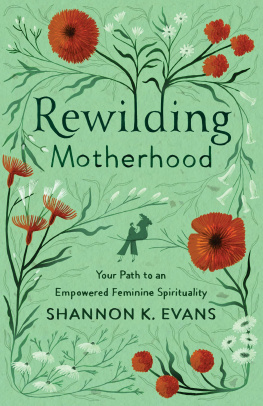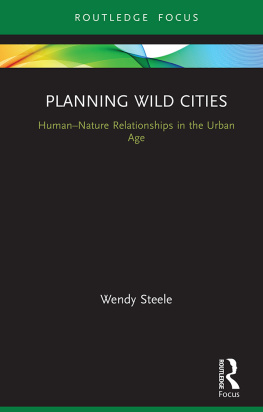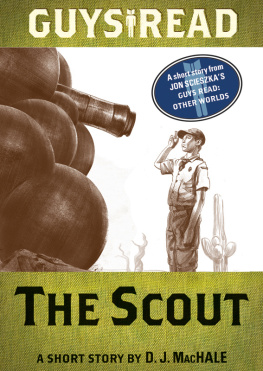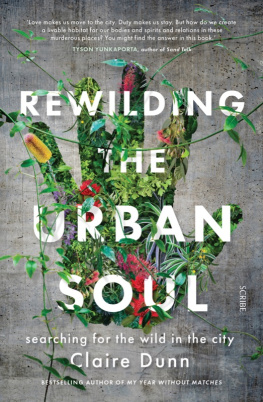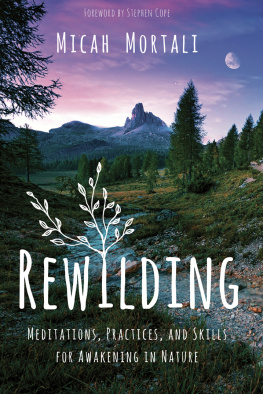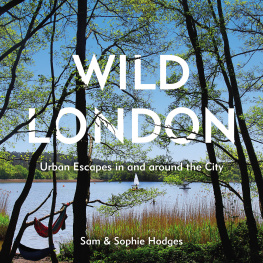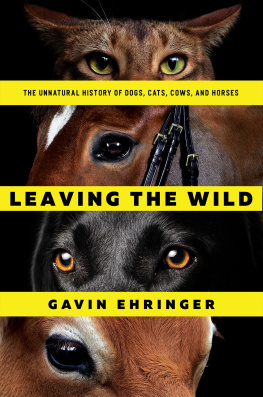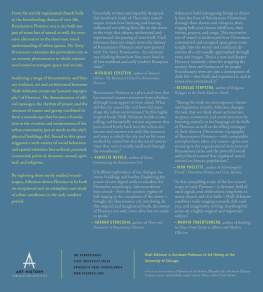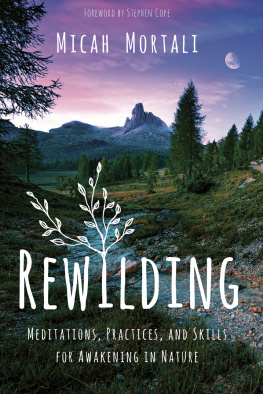Copyright 2008, 2015 by Peter Bauer <>.
All rights reserved.
Edition 1.1 (2016), Original editition first published 2008.
Ebook ISBN: 978-1-62106-803-7
Print ISBN: 978-1-62106-972-0
Book design by George Steel <>.
Cover photo, Right time, wrong place by Kristaps Bergfelds.
Dandelion motif adapted from drawing by Karl Urban.
Figure 1 inspired by diagram in Managing Michigan Wildlife: A Landowners Guide.
Acknowledgments
I would first and foremost like to acknowledge the largest influences on my thoughts and work: Daniel Quinn, Tom Brown Jr., Derrick Jensen, Martn Prechtel, Joseph Campbell, Toby Hemenway, Jean Liedloff, M. Kat Anderson, Nancy Turner, Jason Godesky, and Willem Larsen. Without their words I would not understand the workings of civilization or walk the path of rewilding. I will forever live in debt to them.
Secondly I want to thank my friends Lisa Wells, Nicholas Often, Brandon Rubesh, Jeff Packard, and Nancy and Matt Fitzgerald (may they rest in peace). Without their collective support I wouldnt have become myself and certainly wouldnt have made it through my teenage years. I will forever live in debt to them.
Thirdly I want to thank my family for supporting me and understanding me. I could not do what I do without their unconditional support and love. I will forever live in debt to them.
Fourth, I want to send my thanks to the Earth, the water, the fungi and plants, the insects and animals, the trees, the birds, the wind, the clouds, the sun, moon, and stars for talking to me even when I stopped listening. I will forever live in debt to them.
Lastly I want to thank my muse. The invisible force(s?) that makes me do what I do and whispers ideas in my ear. To the real Urban Scout, I send my biggest thanks. I will forever live in debt to you.
Special thanks to George Steel, who spent hours nagging me to put Rewild or Die back out into the world, and who dedicated hours of formatting to make it look more professional. Huge thanks to Mindy Fitch, who copy-edited this second edition.
A Quick Preface
I didnt write this book to change peoples minds about civilization, or to stand as the word of rewilding, or to prove to the civilized that a horticulturalist or hunter-gatherer way of life works better for people and the planet than the devastating effects of agricultural civilization (okay, maybe a little). Many other books exist on those topics, full of wide-ranging archaeological, historical, ecological, and anthropological evidence (see my bibliography!). With this book, I intend to clarify the meaning behind this cultural renaissance we call rewilding. I do this through sharing my experiences and thoughts on rewilding in an attempt to shed light on elements of rewilding that some may not have seen.
The thoughts in this book reflect my current level of experience and collection of evidence as of 2008. My thoughts on these topics will most likely change over time with new experiences and different pieces of evidence. Honestly, I dont agree all that much with some of the things Ive written here. But I feel getting the ideas into the world outweighs any hesitations for publishing this work. I could write a whole Literacy vs. Rewilding chapter about how the written word, like the verb to be (see English vs. Rewilding), plays god by not allowing things to change the way they did in oral cultures. But maybe Ill save that for another book.
Blah, blah, blah. That said, I have gleaned a lot of information and had countless experiences with rewilding in my life. Though I dont claim expertise, I will stake my claim for the experience I do have! This book works as a tally of my experiences and accumulated thoughts on rewilding. Love it or leave it.
Rewilding: An Introduction
Rewild,verb: to return to a more natural or wild state; the process of undoing domestication
The first time I saw the word rewilding, it grabbed me immediately. I knew that at long last I had a word to describe what I do. For a decade I had used many words attempting to describe my lifestyle: wilderness survivalist, primitivist, anti-civilizationist, tracker, naturalist, permaculturalist, environmentalist, green anarchist, anarcho-primitivist The list went on and on. Nothing quite fit until I found rewilding.
No other word Ive found encompasses the act of abandoning civilization and its roots in domestication like rewild. It also struck me because, as a verb, it implies an action, a process, rather than an end point. An obvious premise sits in this word: giving something back its wildness. Wildness means a lot of different things to a lot of different people. But lets go with dictionary.coms definition:
Wild,adjective:
- Living in a state of nature; not tamed or domesticated: a wild animal: wild geese
- Growing or produced without cultivation or the care of humans, as plants, flowers, fruit, or honey: wild cherries
- Uncultivated, uninhabited, or waste: wild country
- Uncivilized or barbarous: wild tribes
Combine that with:
Re: a prefix, occurring originally in loanwords from Latin, used with the meaning again or again and again to indicate repetition, or with the meaning back or backward to indicate withdrawal or backward motion: regenerate; refurbish; retype; retrace; revert
Considering these definitions, particularly the first entry for wild (living in a state of nature), it makes sense to define rewilding as a return to a more natural state.
Why do definitions matter? People must have a shared reality in order to work together in that reality. I once got into the most insane argument with a man who refused to share reality with me, claiming that nothing is real and there is no such thing as facts. These arguments looked more like philosophical masturbation than practical thinking that would lead to taking actions to create a sustainable planet. While I agreed in the philosophical sense with him, it didnt help anyone to make choices about their actions, and to make those actions in the real world. While I dont believe in the concept of facts, I do believe that we can agree on shared observations of reality. We can observe that agriculture destroys the soil. If we cant share that reality, we cant work together to change our subsistence strategy to one that builds soil. Similarly, if we cant share a reality of what it means to rewild, the word might as well mean nothing at all. The more clearly we define an idea, the easier time we will have using it for practical purposes.
In a sense, I will claim ownership of the term rewilding, in that my lifes work centers around caretaking the idea of what it means to return to a wild, undomesticated life. That, to me, means a hunter-gatherer lifestyle in its wholeness. I dont think of rewilding as some new buzzword or some small scene of people or a just wildlife conservation tactic. I see it as a complex lens through which I view the world. This lens helps me to make decisions about how to live my life.
Now, some contention may lie in that I strongly advocate against running away to the wilderness (which most people assume rewilding implies). While I strongly advocate against it, I still see it as part of rewilding. Because my focus lies in fostering as much rewilding as possible, running away to the wilderness doesnt effect much change or create the hunter-gatherer lifestyle in its wholeness. It doesnt mean it doesnt have its own merit: it certainly does! I also advocate for creating rewilding havens, land where people can work together to rewild. This differs from running away into the wilderness because people still have an interface with civilization to draw out its members, rather than shunning all of it and living as a hermit (which I believe also has its own merit).



